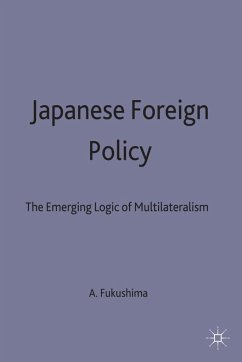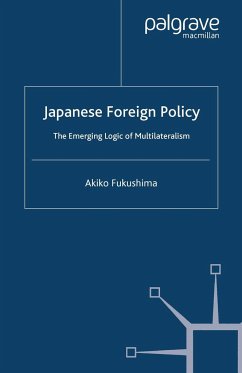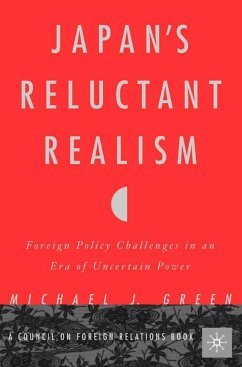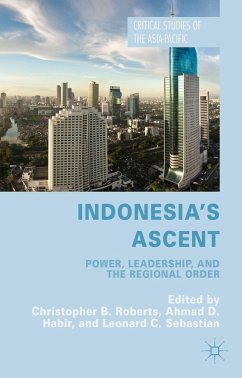
Japan's Evolving Foreign Policy Doctrine
From Yoshida to Miyazawa
Versandkostenfrei!
Versandfertig in 6-10 Tagen
76,99 €
inkl. MwSt.
Weitere Ausgaben:

PAYBACK Punkte
38 °P sammeln!
During half a century after the war Japan's economy was built up from scratch to the world's number two, while its foreign policy has been described by many as passive and even verging on being non-existent. As a contrast, this study evinces how the foundations of Japan's foreign policy were laid in the early postwar period, and how postwar policies have been characterized by pervasive continuity, guided by distinct national goals and expressed in clear-cut national role conceptions.












